Israel-Hamas War: What happened on day 113?
PM Netanyahu: Next massacre 'a matter of time' if Israel fails to destroy Hamas • Israel prepares for intense warfare with Hezbollah in northern IDF drills
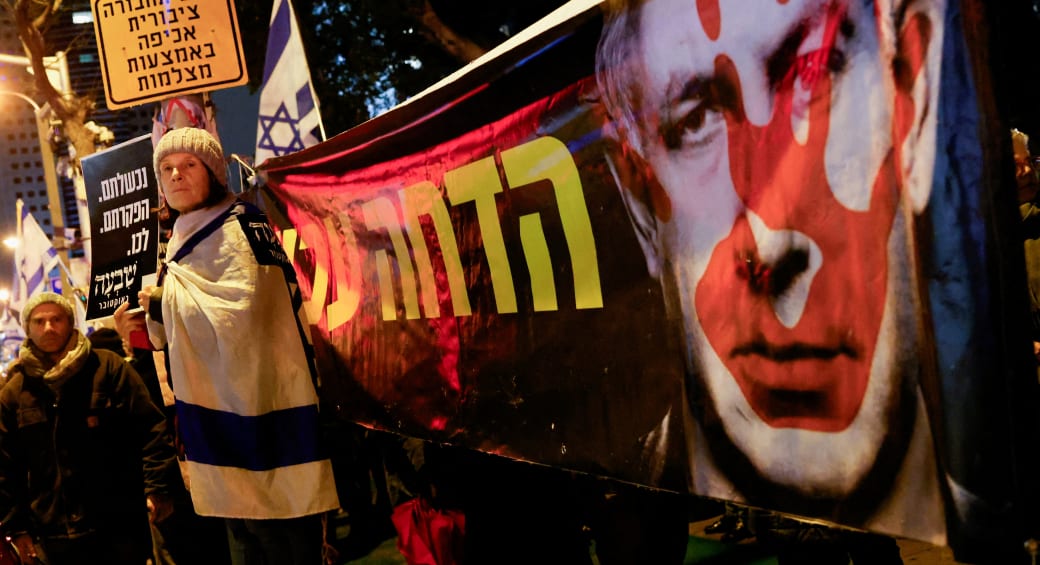
'Nazis failed to take away our humanity': Aharon Barak's chilling testimony at The Hague
The Holocaust, according to Barak, caused him as a judge to recognize the importance of Israel's existence and believe in human dignity.
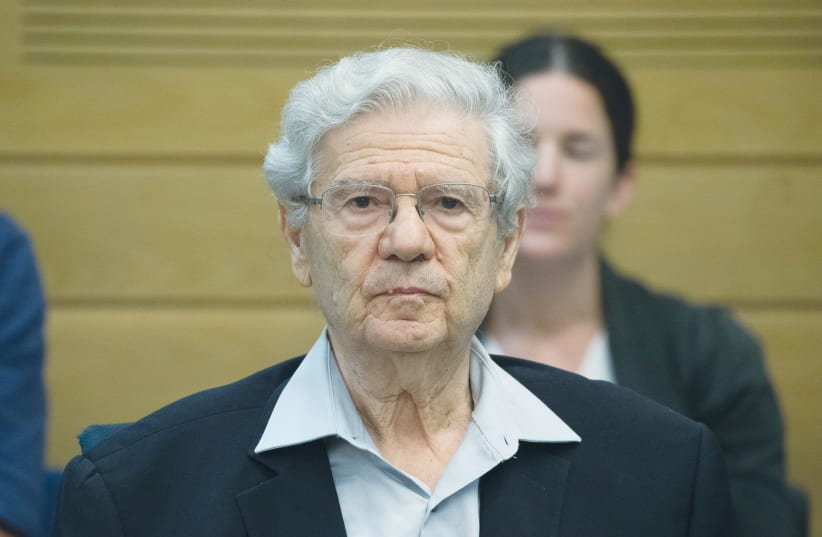
"Genocide is more than just a word to me," wrote Aharon Barak, former Israeli High Court President and Israel’s appointee to the International Court of Justice (ICJ) panel, where South Africa has accused Israel of committing genocide as it fights against Hamas in Gaza.
Barak wrote these words within the framework of the ICJ's decision in The Hague, in a document that, beyond being part of a legal ruling, also includes a personal testimony.
"I was a 5-year-old boy when, as part of Operation Barbarossa, the German army occupied my hometown of Kaunas in Lithuania," he wrote, "within a few days, almost 30,000 Jews from Kaunas were taken from their homes and placed in the ghetto. It was as if they were sentenced to death, and we awaited execution," he went on to say. "On October 26, 1941, all the Jews in the ghetto were ordered to gather in the central square, known as 'Democracy Square.' About 9,000 Jews were taken from the square that day, and executed by machine gun fire.
Barak opened his remarks by criticizing South Africa's appeal to the court. He then reminded Israel of its obligations under the Convention on the Prevention of Genocide, alongside acknowledging Israel's right to defend itself, and emphasizing the importance of providing humanitarian aid to the residents of Gaza. He noted that the court emphasized that "all parties in the conflict in the Gaza Strip are subject to international law - which certainly includes Hamas as well."
Barak explained in great detail why he opposes the demand for an immediate cessation of hostilities, and the definition of Israel's actions in Gaza as "genocide," a concept that represents, in his view, "calculated destruction, and human behavior at its worst." According to him, "this is the most serious accusation possible, and it is woven in the experience of my personal life."
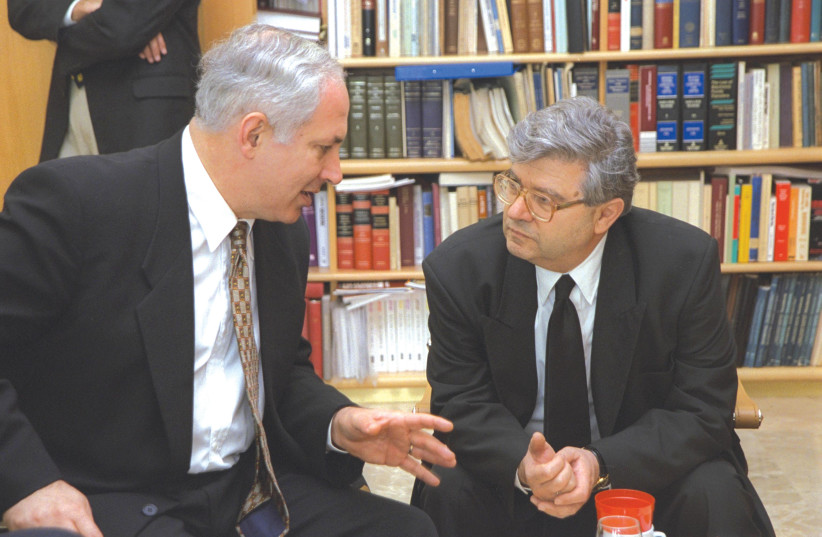
Experience as a Holocaust survivor
Barak also told about his personal experiences as a Holocaust survivor. "There was constant hunger in the crowded ghetto," he wrote, "it was a community of people condemned to death, but in their hearts there was a spark of hope, and a desire to preserve their basic human dignity." He recounted one of the particularly painful episodes in the history of the ghetto: "At the beginning of 1944, the Nazis rounded up all the children under the age of 12, loaded them onto trucks and shot them.
"It was clear that I had to leave in order to survive. I was smuggled out of the ghetto in a sack and I was taken to a Lithuanian farmer. A few weeks later, my mother and I were transferred to another farmer. We had to be very secretive, so the farmer built double walls in one of the rooms. We hid in this narrow space until liberation by the Red Army on August 1, 1944. Only 5% of Lithuanian Jews survived."
The former Israeli High Court president then detailed the impact of the Holocaust on his life and work: "I thought a lot about how this experience affected me as a judge. In my opinion, the effect was twofold: First, I am deeply aware of the importance of the existence of the State of Israel. If Israel had existed in 1939, it is possible that the fate of the Jewish people would be different. Secondly, I am a great believer in human dignity. The Nazis and their conspirators wanted to turn us into ashes and dust. They wanted to take away our dignity as human beings, but in this they failed.
"In the most difficult moments in the ghetto, we preserved our humanity. The Nazis succeeded in murdering many of our people, but they failed to take away our humanity."
Go to the full article >>Never Again, 84 years later: Holocaust survivors share their Oct. 7 experiences
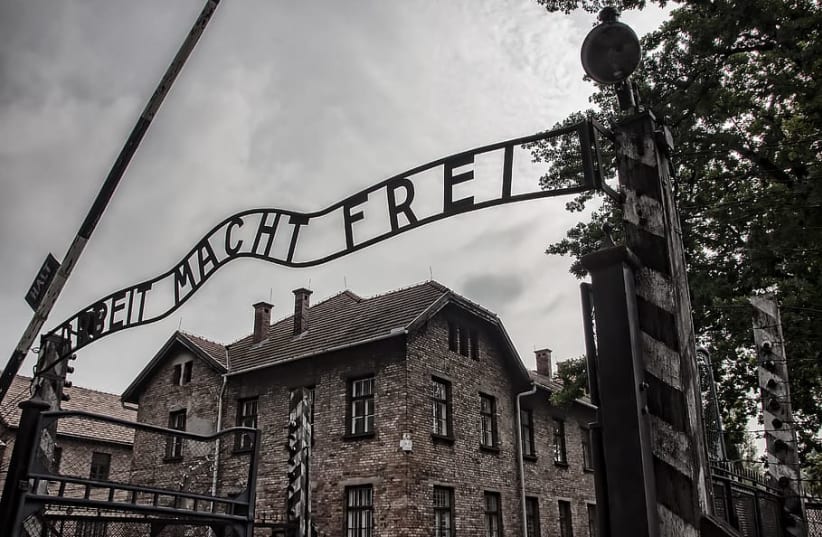
Eighty-four years after Dov Golebowicz fled Poland with his family days before Germany invaded, the Holocaust survivor found himself facing an invasion once again when Hamas terrorists stormed his kibbutz of Nirim on October 7.
For 12 hours, Golebowicz was trapped with his son, Gideon, in his safe room. His son fashioned a basic wooden contraption to secure the door, which does not have a lock. Five people from the kibbutz were murdered and five were kidnapped, of whom two remain hostages in Gaza. Zvi Solow is another Holocaust survivor to survive the attack on Nirim.
In the weeks after October 7, Golebowicz was the subject of multiple news reports, including CNN, which invariably linked his October 7 survival to his experiences in the Holocaust. Others who experienced horrors on that day — when 1,200 Israelis were killed and about 250 taken hostage — made similar comparisons.
Yet Golebowicz has significant reservations about making such a connection, saying it diminishes the memory of the Holocaust as a singular event in history.
“I’ve always felt we shouldn’t mix the two,” he told the Jewish Telegraphic Agency. “While of course it was vicious, barbaric and horrendous, [October7] was a one-day terrorist attack.”
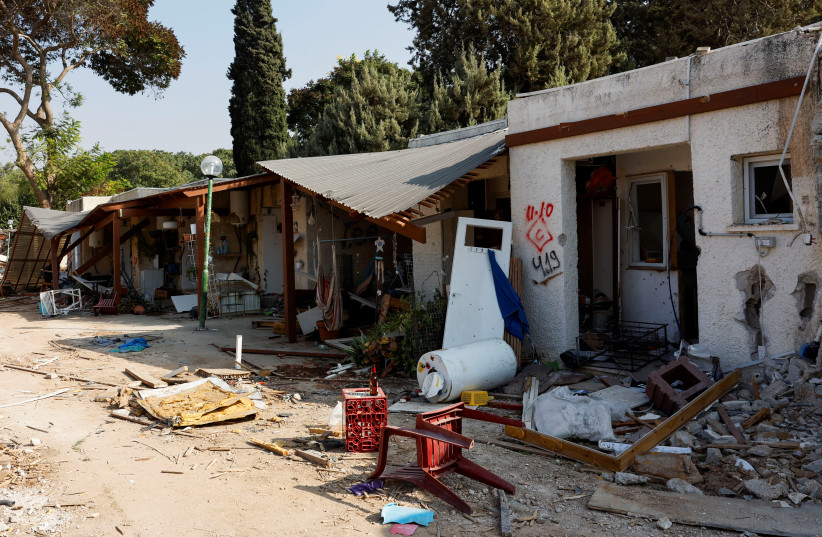
Golebowicz is one of several Holocaust survivors to be caught up in the carnage on October 7. All elderly — the youngest survivors are in their late 70’s — they say they have an important perspective to share, though they don’t all believe the same things.
Haim Raanan, who as a child survived the Budapest Ghetto, has no reservations about calling the October 7 massacre “a second Holocaust.”
Some survivors couldn't believe that once again, they had to hide for their survival
A founder of Kibbutz Be’eri, one of the Gaza envelope communities that was struck hardest on October 7, Raanan said it was “pure luck” that he and his family members survived. More than 100 Be’eri residents died that day.
“I never thought that as a Holocaust survivor, I would need to hide for my life again,” Raanan said at an event on Tuesday at the residence of EU Ambassador to Israel Dimiter Tzantchev to mark International Holocaust Remembrance Day.
“I was shocked to see that eight decades after the Holocaust, the Star of David symbol has been painted once again on Jewish homes all across Europe and the United States to target and frighten them amid the devastating October 7 massacre,” he said, referring to graffiti found in some cities that in some cases authorities have attributed to Russian agitators.
“It echoes the antisemitic persecution I suffered as a child,” Raanan said. “I never imagined that something like this could ever happen again.”
Raanan called on the European diplomats in attendance to do more to combat antisemitism. The event also launched a new installation of the Humans of the Holocaust photo exhibition, in which Raanan features.
Erez Kaganovitz, the photographer behind the project, said attendees at the event were “awestruck” as Raanan recounted his stories of survival.
“How much suffering can one person go though in one in lifetime?” Kaganovitz told JTA. “Listening to him made me realize that when we say never again, it has to mean something.”
Holocaust survivor Gidon Lev, 88, shot to fame during COVID-19 when he became a star on TikTok. He launched his account, which racked up over 460,000 followers and millions of likes, together with his life partner Julie Gray in an effort to combat Holocaust disinformation and to promote his book. Three years later Lev closed the account, citing antisemitic harassment in the wake of October 7 and the social media giant’s reluctance to take action.
“Before the war, we got antisemitic hate from garden-variety Nazis. Oh, how I long for those days. That was easy to refute and dispute,” Gray told JTA. But after October 7, the “turning of the tide was abrupt and powerful,” she said.
“The same young people who had been following Gidon and cheering on his Holocaust education and messages of tolerance and critical thinking started calling him a supporter of genocide and even a ‘baby killer,’” Gray said.
“We both felt utterly defeated. We saw that many Jewish creators on TikTok stood up to this abuse and stuck it out but for us, living in Israel, dealing with the shock of all of it, and the sirens and the running to our shelter, it was too much,” she said. “It wasn’t the worst thing that happened, October 7 was the worst thing that happened, but it really hurt. All the work we’d done seemed to have been meaningless.”
Elon Musk and Ben Shapiro visit Auschwitz
On Wednesday Lev and Gray returned from a trip to Poland, where he accompanied billionaire mogul Elon Musk and the conservative American pundit Ben Shapiro on a visit to the Auschwitz death camp.
After the visit Musk claimed that had social media been around during the time of the Holocaust, it would never have occurred. Like TikTok, Musk’s social media platform, X, has also come under fire for not doing enough to combat antisemitism.
Musk “struck me as a dangerous teenager,” Gray said, “drunk with power. He is of the ‘burn it all down’ ilk.” While he was attentive at Auschwitz, “greet[ing] Gidon politely and listen[ing] to him — sort of,” his talk afterward, in which he described himself as “aspirationally Jewish,” was a crushing disappointment and exposed a “real disconnect,” she said, adding, it was “like inviting an arsonist to a firefighting convention.”
After October 7, Gray wanted to leave on one of the evacuation flights for American citizens. But Lev, whose son and grandson were serving in the reserves, insisted on staying. “I will not run again,” Lev told Gray.
The first time Mira Talalayevsky’s life was saved was on Sept. 29, 1941, when she was not yet 2 years old. Mira’s mother escaped with her from their home in the Kyiv ghetto the night before Jews were ordered on a death march to Babyn Yar.
The second time occurred on October 8, 2023, when Talalayevsky’s home in Ashkelon received a direct hit from a Hamas rocket. Talalayevsky miraculously survived the rocket attack but sustained shrapnel cuts to her face and burns on her body from a fire that broke out in the house after the impact. Her house, and all her possessions, were completely destroyed.
“In my old age I am left with nothing and I have to start over,” Talalayevsky said.
Talalayevsky, 85, was too young to remember the night she was spirited away from the clutches of the Nazis, but said that over the years her mother had revealed every detail to her. When the Jews of Kyiv were rounded up to be transferred to the ghetto, Ukrainian guards were ordered to collect all their valuables. Her mother, an educated woman who knew German, was instructed to record every item that was taken.
Her mother built a rapport with a guard she had witnessed secretly pocketing some of jewelry for himself. The guard later warned her that the Germans were coming in the morning to kill everyone in the ghetto and that night helped Talalayevsky’s mother escape on a freight train. “I only remember the constant feeling of hunger and cold from those years. My childhood was taken from me, but at least I stayed alive,” Talalayevsky said.
Eighty-two years later, Talalayevsky climbed into her bathtub when she heard the rocket siren. It seemed like the safest place to be in her apartment, which was old and without a safe room. A violent explosion shattered her house and Talalayevsky lost consciousness. She was eventually rescued from the rubble by her neighbors. The event has left her with lasting nightmares and without eyebrows, she said.
Three months later, Talalayevsky is still waiting for her apartment to be rebuilt. In the meantime, the government has transferred her to a newer apartment in the city. Talalayevsky credits the International Fellowship of Christians and Jews with being the first organization to reach out after the attack, providing Talalayevsky with material and emotional support. “As a woman of faith, it is very moving to hear that there are many Christians in the United States who care for me.”
Golebowicz, too, is living in temporary accommodations — a retirement home near the coastal city of Netanya, together with some of the other evacuated residents of Nirim. He said he fully intends to go back and live in Nirim as soon as possible.
“I shall return to my home where I have lived for 70 years and help in its restoration,” he said. “All the destroyed kibbutzim will be rebuilt and will flourish again, because the determination and spirit in Israel is strong.”
Go to the full article >>White House push for two-state solution highlights gaps between US and Israel
Amid a war and with the constant need for American support, Israel would rather be drawing less attention in the domestic arena of US politics.
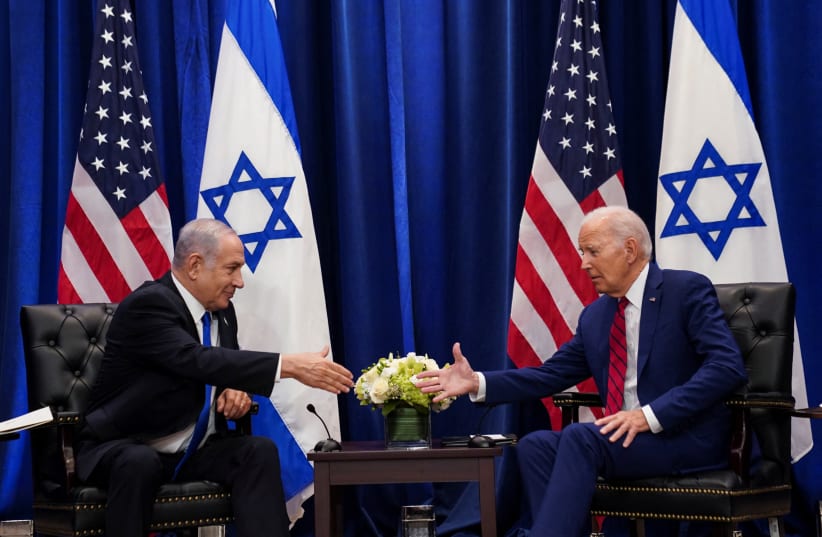
A statement backed by the majority of US House Democrats on Wednesday in support of a two-state solution to the Israeli-Palestinian conflict showed a growing gap between Israel and the US.
Forty-nine of the 51 members of the Senate Democratic Caucus supported an amendment backing a negotiated solution to the decades-old conflict that will end with an Israeli and a Palestinian state living side by side. The amendment called for ensuring Israel’s survival as a secure, democratic, Jewish state while fulfilling the Palestinians’ “legitimate aspirations” for their own state.
A solution that sees the establishment of a Palestinian state alongside Israel has been widely accepted by the international community as the answer to the long and bloody Israeli-Palestinian conflict. For decades, the Palestinians have sought to establish an independent state in the West Bank and Gaza Strip, with east Jerusalem as its capital.
“The current administration has been consistent in its support for the two-state solution,” said Col. (res.) Eldad Shavit, a senior researcher at the Institute for National Security Studies and a former senior intelligence officer. “But it now sees an opportunity for new regional architecture. This will be a long and complicated process, but the base of this is a settlement of the Gaza issue, linked to the Palestinian Authority (PA) that will result in the establishment of a Palestinian state.”
The new architecture includes normalization between Israel and Saudi Arabia. Before the current war in Gaza, this was at the top of the American foreign policy agenda. It was also an Israeli and Saudi interest that was thought to have been cut short due to the Hamas offensive that began the war.
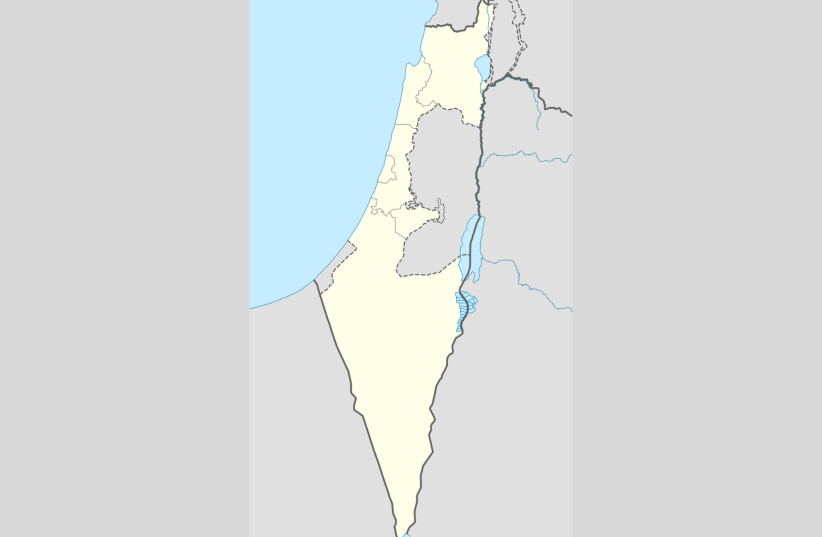
“Biden sees the current crisis as an opportunity to create something new, a new regional alliance against Iran,” Dr. Shay Har-Zvi, head of the International and Middle Eastern Arenas at the Institute for Policy and Strategy at Reichman University, told The Media Line. According to Shavit, support for the amendment in the Senate was aimed at the US administration, led by President Joe Biden, as it faces the Israeli government.
As the war drags on, there has been increasing friction between the White House and Jerusalem. US support for Israel was unequivocal as it set out to eradicate Hamas, but as the Biden Administration pushed Israeli Prime Minister Benjamin Netanyahu to delve into postwar plans for the Gaza Strip, differences of opinion emerged.
The White House has been speaking about a “revamped and revitalized PA,” attuned to Israel's outright rejection of the option that it will rule in the Gaza Strip once Israel withdraws.
“In Biden’s eyes, the war only highlights the need for a long-term solution,” Har-Zvi said. “Biden understands that a lot of changes will be needed for the PA to rule, but he believes this is the best solution for Israel to remain a democratic and Jewish state.”
Statehood is a complex issue that goes back decades
Israel captured the West Bank during the Six-Day War in 1967, and since then, more than 700,000 Jewish residents have settled in the territory, including in East Jerusalem. The international community generally views the West Bank as occupied and Israeli settlements as illegal.
The PA, dominated by the Fatah party and led by President Mahmoud Abbas, has full control of part of the West Bank, referred to as Area A, and partial control over Area B. Meanwhile, Area C is fully administered by Israel.
In 2007, the armed Islamist movement Hamas forcibly seized control of the Gaza Strip following a violent conflict with Fatah. This takeover occurred after a brief period of a Palestinian unity government, effectively splitting the governance of the Palestinian territories, with Fatah retaining control of the West Bank.
The split between Hamas and the Fatah-ruled PA has further distanced the Palestinians from statehood, as consecutive right-wing Israeli governments insisted the rift made statehood unfeasible.
Abbas was elected to the presidency for a four-year term in 2005 but has managed to postpone elections since then, significantly damaging his standing among Palestinians. His lack of legitimacy is only one of the hurdles the American plan must overcome.
Speaking at the World Economic Forum Annual Meeting in the Swiss resort of Davos last week, US Secretary of State Antony Blinken said that Israel will not be able to secure itself without a “pathway to a Palestinian state.”
US support for Israel since the beginning of the war has come in many forms, including continuous weapon replenishment, support in international forums, and the deployment of American forces in the region to serve as a deterrent for other actors who may want to attack Israel. None of these are indispensable to Israel.
For years, Netanyahu has maintained a tricky act of telling his voters he is against a Palestinian state while telling the US and other countries he does not rule one out. “Netanyahu knows he has to make concessions in order to meet American interests,” Shavit told The Media Line. “Until now, Netanyahu has led moves that converge with those interests.”
Last week, Israel allowed for the entrance of a substantial amount of flour into Gaza as part of the American push for increased humanitarian aid into the territory. The move was highly unpopular among many Israelis who want to see the release of hostages from Hamas captivity before any aid was given to Gaza.
“Netanyahu knows he has to make concessions in order to meet American interests.”
Eldad Shavit
“The American vision is dependent on removing Hamas from power,” said Har-Zvi. “There is a direct connection between the broad legitimacy the US is currently giving Israel to its view on how it sees the postwar solution to the conflict and the day after in Gaza.”
According to a poll conducted by the Israel Democracy Institute last month, the majority of Israeli Jews do not agree on the pursuit of the two-state solution in return for continued American assistance. The numbers are even more clear-cut when looking at only right-wing.
Voters, of whom just 21% think Israel should appease the US on this matter. Netanyahu, who leads Israel’s most-right wing government to ever govern, has his own political considerations to make.
Unfortunately for Netanyahu, the war highlighted what he was so desperate to avoid. Through his strengthening of Hamas during the years at the expense of the PA, he managed to sideline the two-state solution, rendering it unsolvable. The Israeli leader, along with many in the defense and political echelons, thought that stabilizing Palestinian lives would rid them of their national aspirations.
“If until the war began, the Palestinian issue could have been fogged, it is now clear that it will be a major issue in any future and cannot be circumvented in any regional settlement,” said Har-Zvi.
In just under a year from now, Americans will head to the ballots. While traditionally foreign policy issues are not what the American public votes on, the war in Gaza and the future of the Israeli-Palestinian conflict could easily become another thorny issue in an already polarized presidential campaign.
Former US President Donald Trump, who looks to be on the path to becoming the Republican presidential candidate, saw eye to eye with Netanyahu on the Israeli-Palestinian conflict.
“Trump will want to portray Biden as weak and say that what Biden is doing is anti-Israeli,” said Shavit.
Traditionally, the majority of American Jews vote for the Democratic party. But for Israel, which has always sought to portray American support for it as unwavering bipartisan, being an issue in the election campaign is less desirable.
“Israel is very concerned about being in the midst of a struggle between Democrats and Republicans,” Har-Zvi said.
Amid a war and with the constant need for American support, Israel would rather be drawing less attention in the domestic arena of US politics.
Go to the full article >>White House still thinks genocide allegations 'unfounded' after ICJ ruling
"The right number of civilian casualties is zero," Kirby said. "But there's no indication that we've seen that validates a claim of genocidal intent or action by the Israeli Defense Forces."
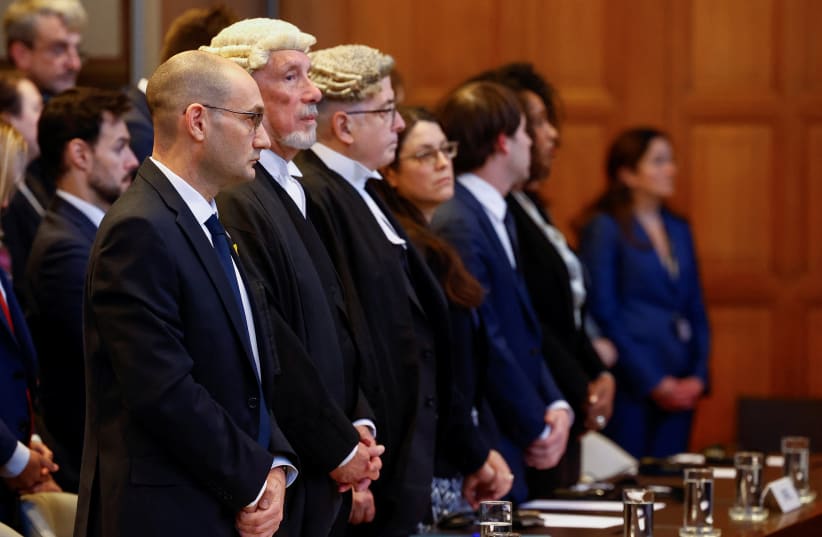
The White House maintains its support of Israel and denounces claims of genocide following the International Court of Justice's first ruling on Friday in South Africa's application.
The administration continues to say it finds all allegations of genocide to be unfounded.
"The ruling will not change President Biden's approach to Israel," White House National Security spokesman John Kirby said during a press conference at the White House on Friday.
Kirby reiterated the administration's stance against a general ceasefire, while pushing for pauses in fighting for getting aid into Gaza and to release the remaining hostages.
Kirby said Biden's call on Friday with Qatar was to continue discussions of another hostage deal.
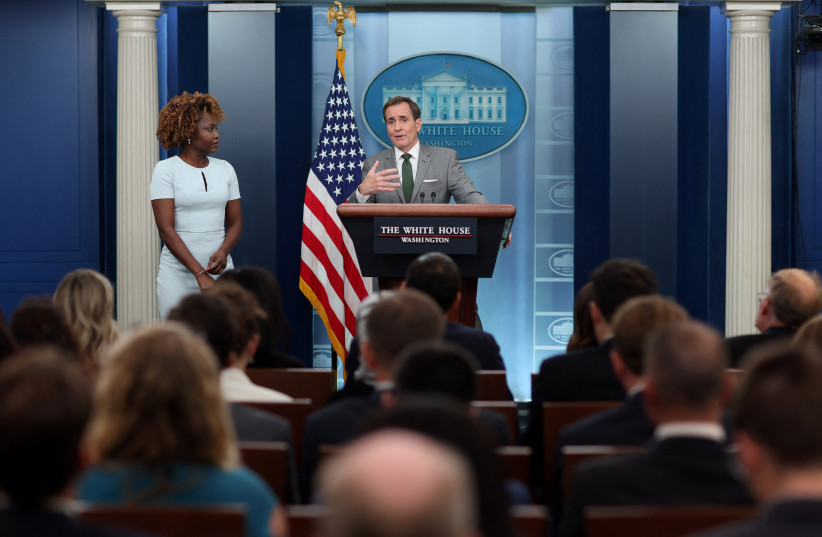
"Hamas still poses a viable threat to Israel, which has the right and responsibility to defend itself," Kirby said.
Like the ICJ said in its ruling, Kirby said the US is also urging Israel to follow its obligation to minimize civilian casualties and assist the international community to get humanitarian assistance.
"The right number of civilian casualties is zero," Kirby said. "But there's no indication that we've seen that validates a claim of genocidal intent or action by the Israeli Defense Forces."
Kirby said the Israeli war cabinet and the IDF have been receptive to the administration's advice and counsel, which led to changes on the ground like providing safe passages from Northern Gaza to Southern Gaza and relying less on airstrikes.
Kirby deferred to the Israeli government and defense forces to speak about specifics of their operation.
"They had been receptive to a lot of the things that we wanted to see them do. It doesn't mean that we're going to see eye to eye on every aspect of the way they're prosecuting this operation, their operation," Kirby said. "They are a sovereign nation. We provide our advice and counsel and lessons learned, they have to make these decisions and they have to answer for the decisions that they're making or unmaking."
Kirby declined to address concerns regarding Biden's handling of the war impacting his chances of reelection.
"The President is concerned about Israel's right to defend itself from a legitimate terrorist. The President is concerned about the humanitarian crisis that's going on in Gaza right now," Kirby said.
Kirby acknowledged the allegations against 12 members of UNRWA who reportedly assisted Hamas on Oct. 7, saying there's cause for concern but it should not impugn the agency as a whole and the work they're doing in Gaza to save lives.
Kirby said the administration is willing to hold the agency and individuals accountable for this incident pending the outcome of the investigation.
The White House also acknowledged International Holocaust Remembrance Day
At the beginning of the press conference, White House Press Secretary Karine Jean-Pierre acknowledged International Holocaust Remembrance Day, observed on Saturday.
"As the President said in a statement this morning, this year our charge to remember the Holocaust is as pressing as ever, in the wake of the evil attacks by Hamas terrorists on the people of Israel, which amounted to the deadliest attack on Jews since the Holocaust," Jean-Pierre said.
"We must continue to call out Holocaust denialism and efforts to minimize the horrors that Hamas perpetrated perpetrated on October 7, including the horrific use of rape and sexual violence to terrorize victims," Jean-Pierre said.
Jean-Pierre said Biden will continue to stand up to antisemitism and hate-fueled violence at home and abroad.
"This is our charge to ensure we cannot continue to say never again," Jean-Pierre said.
Go to the full article >>IDF eliminates four Hezbollah terrorists after rocket sirens sound in Israel's north
The report of the deaths comes moments after the Lebanon-based terror group fired rockets into northern Israel, most notably towards Arab al-Aramshe.
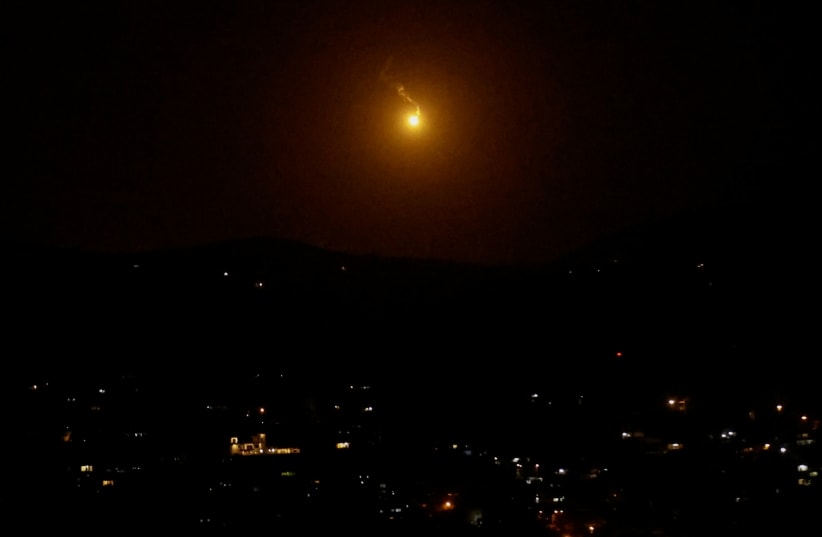
The Hezbollah terrorist organization announced that four of its militants were killed in an IDF strike in southern Lebanon on Friday, Hebrew media reported.
The report comes following a number of rocket launches from Lebanese territory into Arab al-Aramshe in northern Israel were detected, to which there were no casualties. Israeli forces then attacked the sources of the rocket fire.
Rocket sirens also sounded in kibbutz Adamit and Moshav Zar'it.
There was also concerns of a security incident at the Israel-Lebanon border, with Israeli media reporting that there was an exchange of gunfire, which was eventually ruled out.
IDF aircraft attacked two operational infrastructures belonging to the Hezbollah in the village of Beit Leaf, as well as a military building in the village of Deir Aames.
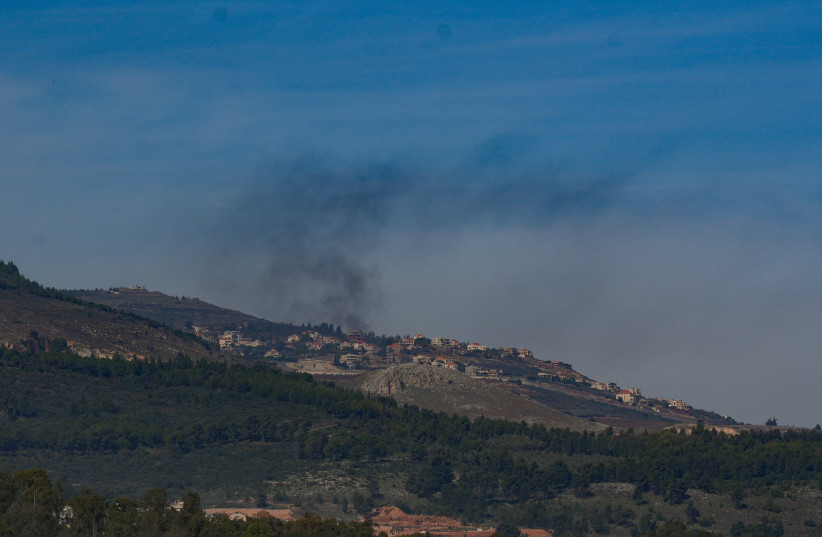
What happened the day before?
The day before, the IDF attacked a key Hezbollah-Iranian airstrip in Kilat Jaber, Lebanon, that was used for launching aerial attacks against Israel.
Defense Minister Yoav Gallant said that “Put differently, the land is Lebanese, the control is Iranian, the target is Israel.”
“Put differently, the land is Lebanese, the control is Iranian, the target is Israel.”
Israeli Defense Minister Yoav Gallant
Yonah Jeremy Bob contributed to this report.
Go to the full article >>World Court ruling on Gaza the 'opposite of justice,' Gallant tells IDF troops
"Those who sit in their leather armchairs in The Hague...come today to teach us what justice is and how we should behave?" Gallant told IDF counterterrorism troops on Friday.
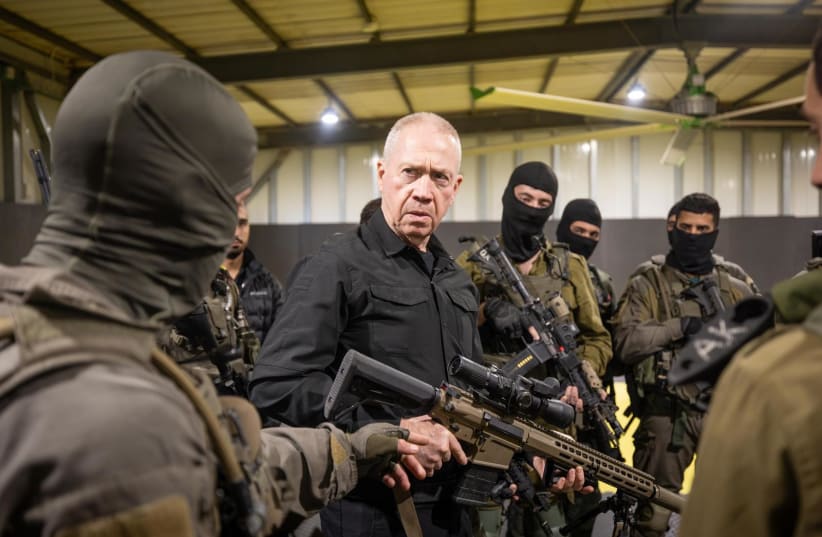
Defense Minister Yoav Gallant visited the LOTAR counterterrorism unit at the unit's training facilities in the Adam Base on Friday afternoon.
During the visit, Gallant was shown the unit's activities starting from October 7 during fighting in the Gaza border towns until right now.
They showed him how regular and reserve fighters operate across all sectors, and simultaneously lead training and assimilation efforts while cooperating with the many of the units in the field.
Gallant told the fighters "We will eliminate Hamas, there will be no quick fix. We will ensure that the government in Gaza will not be the government of Hamas and the army in Gaza will not be the army of Hamas.
"Regarding terrorism, we will fight for a long time, it will not take one day, it will take much longer. Therefore, prepare yourselves for this, you have the duty, may I say, the right to fight, the most just war that the people of Israel and the State of Israel can have."
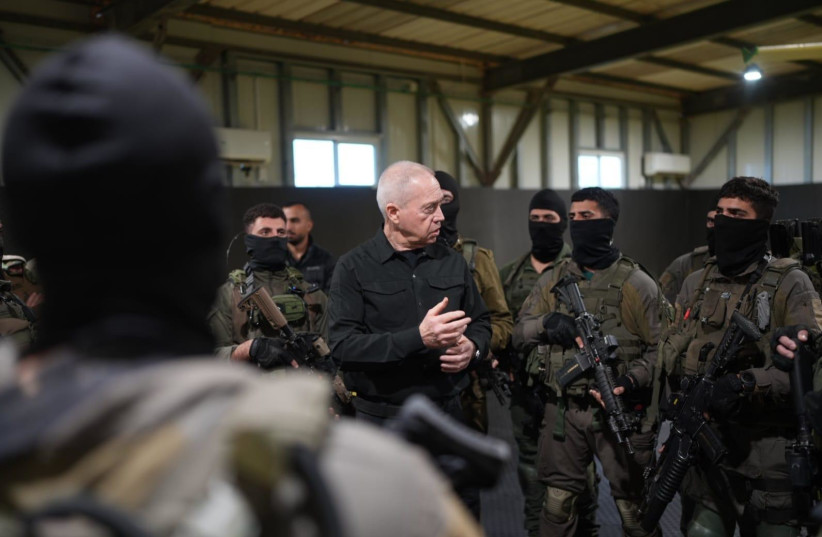
Gallant: Who is the Hague to pass judgment?
Gallant then went after the International Court of Justice in the Hague, accusing them of having no moral standing.
"At this very moment, as we stand here, the Hague Tribunal is trying to pass judgment on something that is the opposite of justice.
"They created the International Court of Justice and gave it the authority to discuss the crime of genocide, because of what happened to the Jews, especially to the Jews of Europe during World War II."
"Sanctomoniusly, they come and sue the State of Israel, which defends itself, for trying to destroy the State - they kill children, rape women, kidnap old people, and for that they take the State of Israel to court."
"Those who sit in their leather armchairs in The Hague, who in some of their countries 80 years ago exterminated Jews. They come today to teach us what justice is and how we should behave?"
"An IDF soldier goes on a mission with the values of the IDF on his heart and in his memory, the spirit of the IDF, which talks about what values are and what true warfare is, and who should be hurt and who should not be hurt."
"A Hamas terrorist, on whom we found notes in their pockets, on each one written 'The blood of the Jews is tastier than the blood of someone else, go and drink it' - that's the message."
Regarding conspiratorial rumours
"Recently, in many places and unfortunately also from members of the public, I heard attacks on IDF officers, on the Shin Bet (Israel Security Agency), on the Mossad, on others, and the IDF and all the security organizations are parts of the body of the State of Israel."
"The State of Israel is always behind you, and we give you full backing, and I, as the Defense Minister, [along with] the Chief of Staff, the head of the Shin Bet, the head of the Mossad, all these people give full backing to the IDF. We stand behind everything you do, everyone here is an emissary of ours going to carry out the mission. We stand behind you, we are with you in everything even if you hear, someone say one thing and someone says the other, be sure of the rightness of your way, both as soldiers and as fighters."
Go to the full article >>Israeli security chief to Netanyahu: Launch inquiry into October 7
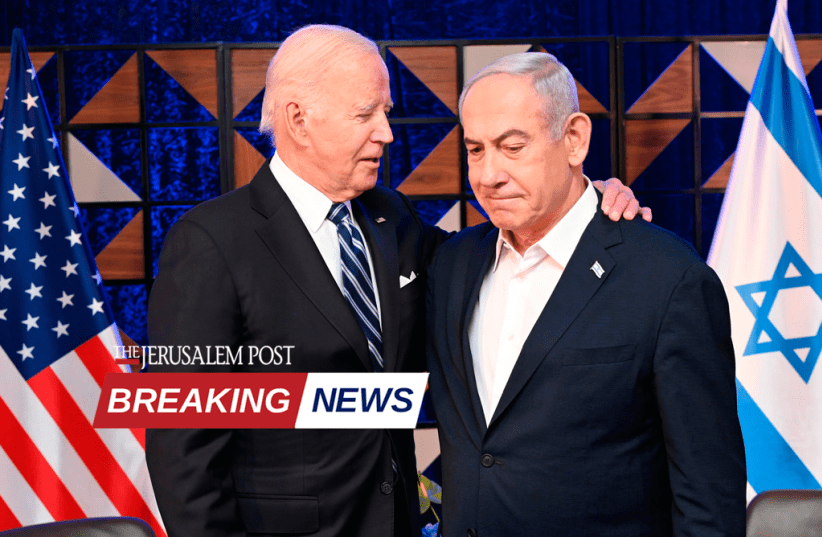
Israel's government must establish a state commission of inquiry into Hamas's October 7 massacre, Shin Bet director Ronen Bar demanded of Prime Minister Benjamin Netanyahu during a Thursday evening cabinet meeting, Israeli media reported.
"Establish a committee, and everything will become clear," Bar was quoted as saying.
This is a developing story.
Go to the full article >>US remains hopeful on Gaza hostage deal as Biden speaks to Qatari emir
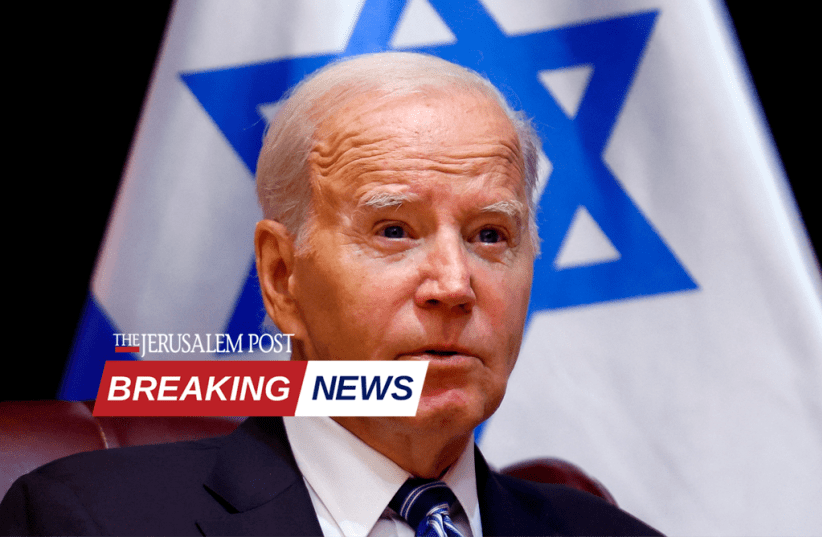
US President Joe Biden on Friday spoke with Qatar's Emir Sheikh Tamim bin Hamad al-Thani about Gaza and efforts to secure the release of hostages taken by Hamas, the White House said.
The White House expressed hope on Friday about progress in talks to release hostages held by Hamas in Gaza as President Biden's Middle East envoy Brett McGurk returns to Washington from a trip to the region.
White House spokesperson John Kirby said McGurk was returning after holding hostage talks in the region.
Kirby said Biden spoke with Egyptian President Abdel Fattah al-Sisi on Friday.
Go to the full article >>Israel-Hamas War: What you need to know
- Hamas launched a massive attack on October 7, with thousands of terrorists infiltrating from the Gaza border and taking some 240 hostages into Gaza
- Over 1,200 Israelis and foreign nationals were murdered, including over 350 in the Re'im music festival and hundreds of Israeli civilians across Gaza border communities
- 136 hostages remain in Gaza, IDF says